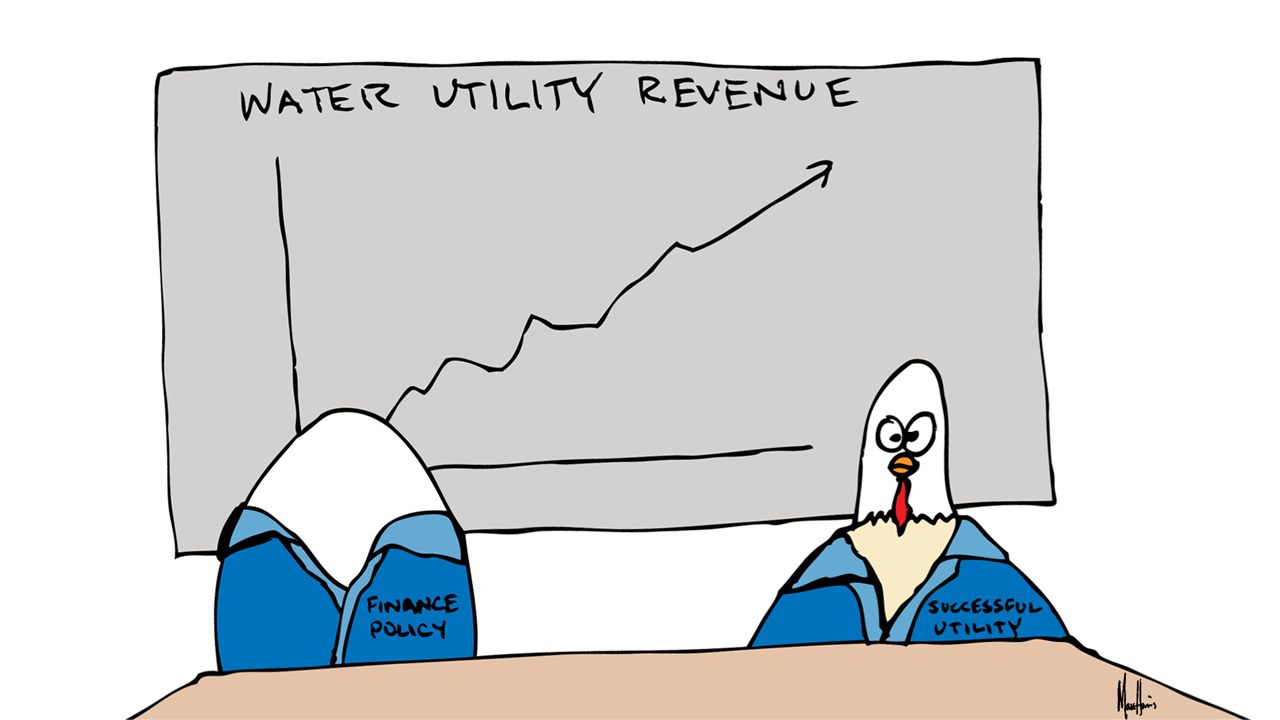Stacey Isaac Berahzer is a Senior Project Director for the Environmental Finance Center at the University of North Carolina, and works from a satellite office in Georgia.
We recently facilitated the first “Peer2Peer Exchange” where utility officials from ten of our partner water utilities on a Water Research Foundation project shared stories about their financial policies. To get discussions kicked off, we asked folks which came first, the “well-managed, financially sound utility” (the chicken) or the “financial policy” (the egg).







